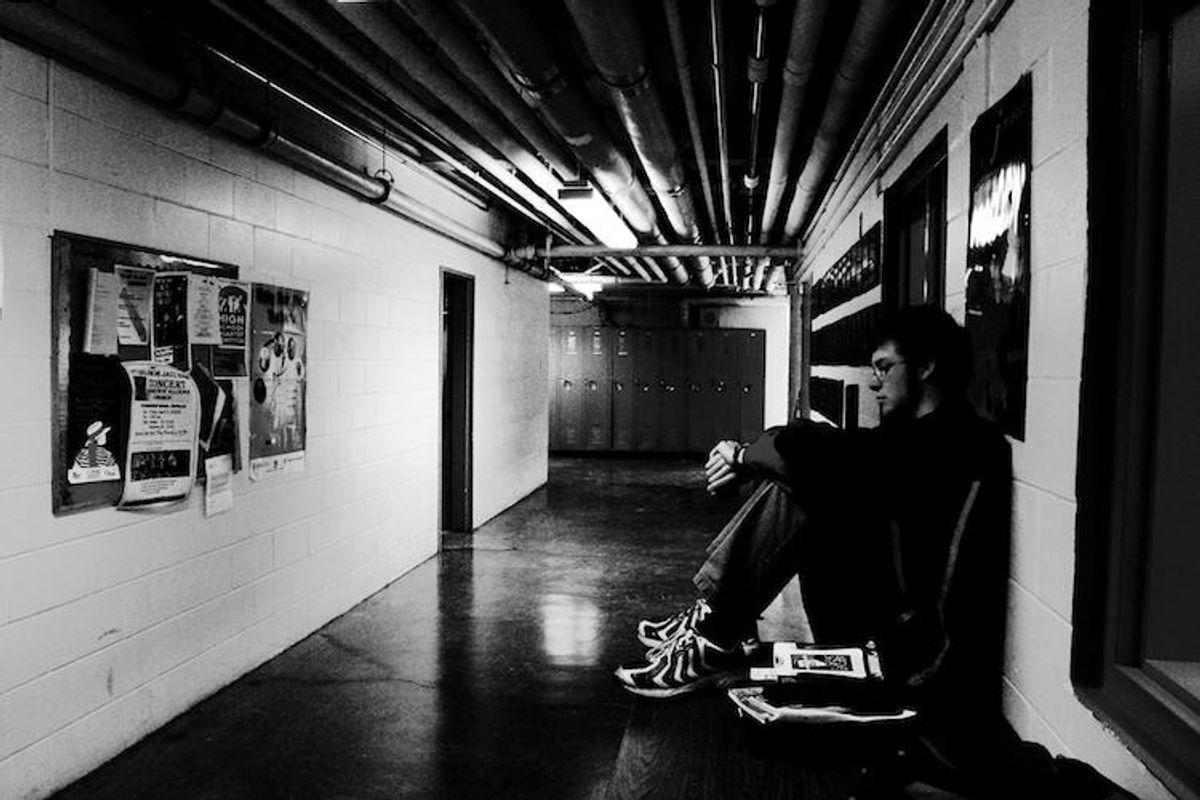James Buck started his sophomore year little more than a week ago--and for the first time, he's walking his high school hallways as an out transgender male.
"If I'm completely honest, it's been less than six months since I really came out," Buck tells Out. "I came out first to my friends. I was a little scared to talk to my parents because they've known me as a girl my whole life. It's not just my transition; it's theirs, too."
The 15-year-old is returning to Green Mountain High School in Lakewood, Colorado, after a challenging summer not just for him personally, but for transgender students across the country.
On Aug. 21, a Texas federal judge halted a Department of Education guidance instructing schools to allow transgender students to use bathrooms and changing rooms matching their gender identity. That means schools can, at least for this school year, discriminate against transgender students by forcing them to use the bathroom of their assigned sex.
Buck describes how discrimination can hurt and confuse transgender students--even endanger them.
"Being told that you are not how you identify takes a massive toll," he says. "If I go into the women's restroom and I look very masculine, I still get yelled at. I get the looks, or I get kicked out. That's not a fun feeling. Worst-case scenario, if I go into the men's restroom and I'm not looking masculine enough, I could get beat up. It's just scary."
While debate rages across the country over transgender people's access to basic facilities, Nathan Smith, GLSEN's director of public policy, clarifies that, for transgender students, the schools themselves wanted guidance.
"You had school districts that were asking for direction on how to serve transgender students," he says. "School leaders welcomed the federal guidance because it finally provided some clarity. Now, since the court ruling, they're starting school back in a gray area. They were working on inclusive policies. They were training educators on how to serve transgender students. After the students themselves, this ruling hurts school administrators the most."
As a GLSEN National Student Council member, Buck has seen the news this summer, but he admits he gets emotional when following the stories.
"The cases hit really close to home," he says. "It doesn't feel great to read those headlines like, 'Trans kid gets blocked from going to bathroom.' They don't realize that students, that I, don't belong in the other bathroom."
With federal guidance on hold, schools must decide themselves how to connect with transgender students. Buck talks about a transgender male friend in southern Colorado who can't use either restroom at his school. Staff explicitly told him he has to use a gender-neutral stall.
"The guidance was a tool for transgender students to argue from the ground up for their rights," Smith says. "They had a federal document that they could point to and say, 'I know what needs to happen' and take that to their school leaders. Now these students are starting the school year in possibly discriminatory environments without the protections they thought they would have only a few weeks ago."
Buck is lucky enough to set GLSEN safe spaces around his school, to work with counselors on transgender issues, and to participate in the school's gay-straight alliance. He wants to try out for the school swim team in November--he's been swimming since he was 5--but before he can even think about making the team, he has to consider his gender identity.
"I have to figure out which gender team I can join--if I can join the boys team--which bathroom I can use, which locker room I can," he says. "I just wish people could realize I'm not going to go to the bathroom for any other purpose than that--going to the bathroom."
Buck's uncertainty, his anxiety, is what makes the need for transgender student protections so important.
"We know students do better in school if they feel more connected to the school community," Smith says. "Losing this guidance puts the well-being of students at an even greater risk now."

















































































